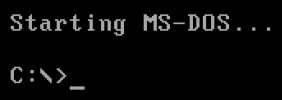okeefe4prez
Well-Known Member
Any of you dudes know anything about programming? My kid asked me what the hardest math question ever is and I told him it is the 3n+1 problem (I don't know if this is true, I just saw it in Popular Mechanics). We ran through how to do it (if number is odd, multiply it by 3n+1, if even divide by 2, repeat) and eventually every positive integer hits a 4, 2, 1 infinite loop (3(1)+1 = 4 /2 = 2 /2 = 1). Kid went berserk when he saw the infinite loop and was trying to test all sorts of numbers from supper until he went to bed. I was hoping he'd forget about it by this morning, but nope. Anyway, I was thinking we should write a program that can test numbers so he can feel like he's working on it and stop stressing over it. Seems like it would be a fairly simple program. Does anyone have a recommendation for a simple language to write it in where I can get all the crap needed to do it for free? I know nothing about programming.




